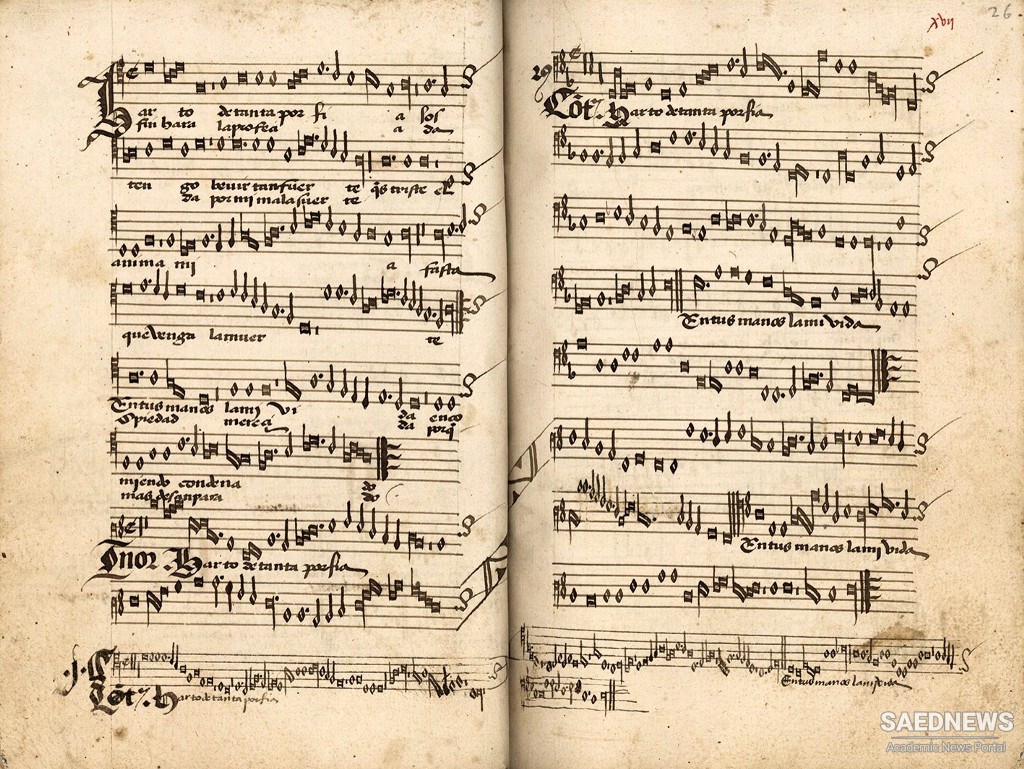These characters were of different value and velocity, according to other characters placed at the beginning of a musical composition, and likewise frequently occurring in the course of a piece, to anounce a change of measure : as from common time to triple, from quick to slow, or the contrary. These characters were called Moods, but they were so extremely embarrassing and ill understood, till the invention of bars, by which musical notes were divided into equal portions, that no two theorists agreed in the definition of them.
These modes, by which the kind of movement, with respect to quick and slow, as well as the proportions of the notes, used to be known, serve for no other purpose, since technical terms, chiefly taken from the Italian language and music, have been adopted, than to mark the number and kind of notes in each bar. But by this invention of musical characters for time, and the use of bars, we have certainly advanced in the composition and performance of instrumental music, by giving to it more energy and accentuation ; it has now a cadence and feet of its own, more marked and sensible than those of poetry, by which it used to move.
We have also, in our Airs, a distinct species of music for poetry, wholly different from Recitative and Chanting ; for in these we are less tied down to stated measure than the ancients, being only governed by the accent and cadence of the words. However, our florid-song, it cannot be dissembled, is not always sufficiently subservient to poetry ; for in applying music to words, it frequently happens that the finest sentiments and most polished verses of modern languages are injured and rendered unintelligible, by an inattention to Prosody. Even the simple and plain rides of giving a short note to a short syllable, a long to a long ; and of accentuating the music by the measure and natural cadence of the verse, which, it may be supposed, the mere reading would point out to a good ear and understanding, are but too frequently neglected.
Modern melody requires, perhaps, more than a single sound to a single syllable ; and a fine voice deserves, now and then, a long note to display its sweetness ; but this should be done upon long syllables, and to open vowels, and, perhaps, in general, after the words have been once simply and articulately sung, for the hearer to know what passion is intended to be expressed, or sentiment enforced, by future divisions.
Expletives, particles, and words of small importance, are forced into notice by careless or ignorant composers, who, only intent upon mere music, pay no regard to her sister, poetry. But then, poetry, in revenge, is as little solicitous about musical effects ; for symmetry of air, or simplicity of design, are generally so little thought of, that every heterogenous idea, which can be hitched into rhyme, is indiscriminately crowded into the same song. Indeed music and poetry, like man and wife, or other associates, are best asunder, if they cannot agree ; and on many occasions, it were to be wished, that the partnership were amicably dissolved.
Salinas tells us, from St. Augustine, that poets and musicians have ever been at strife concerning long and short syllables, accents, and quantity, since they have ceased to be united in one and the same person, and have set up different interests. There is some poetry so replete with meaning, so philosophical, instructive, and sublime, that it becomes wholly enervated by being drawled out to a tune, which affects no part of the head, but the ear. And there is, again, some kind even of instrumental music, so divinely composed, and so expressively performed, that it wants no words to explain its meaning : it is itself the language of the heart and of passion, and speaks more to both in a few notes, than any other language composed of clashing consonants, and insipid vowels, can do in as many thousand.


 Early Evolution of Musical Instruments
Early Evolution of Musical Instruments














































